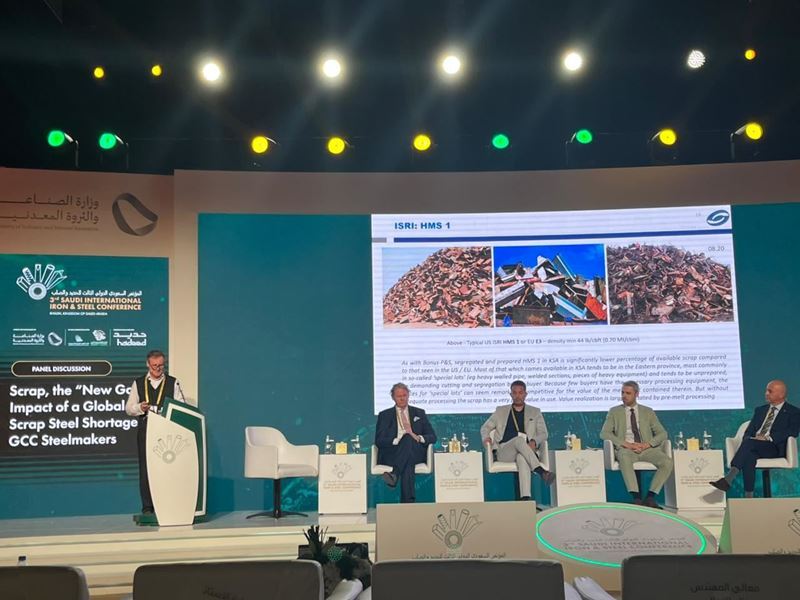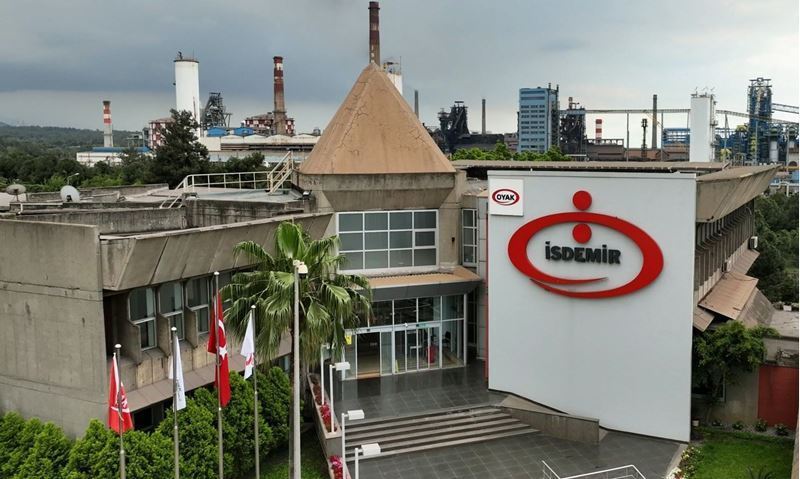At the 3rd Saudi International Iron and Steel Conference, the scrap panel discussed the rising scrap demand of Gulf Cooperation Council (GCC) steel producers and their strategies for supply security.
As global steelmakers increase scrap use to meet emission reduction targets, European authorities are seeking to limit scrap exports to secure local supply, while India’s growing demand intensifies competition. This trend is challenging GCC producers’ efforts to integrate more scrap into their raw material mix.
The panel explored how steel plants are utilizing scrap to lower emissions and the future of Electric Arc Furnace (EAF)deployment. It also examined GCC steelmakers’ measures and investments to ensure scrap supply security, as well as the impact of export restrictions in Europe and other regions, market dynamics, and price trends across the GCC.
Speakers included Ahmed Khadr (Iron Trading Director, Al Qaryan Group), Joachim Schroeder (Chairman, Research & Consulting Group AG), and Lee Allen (Senior Strategic Markets Editor, Fastmarkets). The panel was moderated by John Short, CEO of Boomer Commodities.
Highlighting the importance of scrap production and processing infrastructure, the panel noted that most of Saudi Arabia’s scrap supply is concentrated in the Eastern Province, sourced mainly as private lots. The value of this scrap remains low without pre-processing such as cutting and sorting.
Details were also shared on automotive scrap processing. Rajhi Steel operates the only facility in KSA capable of handling automotive scrap. Vehicles must first be drained of fluids, have tires removed, and be compacted using high-pressure presses before processing steps that increase scrap value and EAF operational efficiency.
The panel presented global forecasts for scrap and EAF production. In 2024, global EAF output stood at 1,319 Mt and BOF at 565 Mt; by 2030, EAF production is expected to reach 1,266 Mt, while BOF will rise to 712 Mt. Global scrap demand is projected to grow from 729 Mt in 2024 to 883 Mt in 2030, while scrap supply will increase from 755 Mt in 2022 to 868 Mt in 2030. Regional imbalances between scrap supply and EAF output particularly in India and China could lead to future shortages.
The key takeaway from the panel was that GCC steel producers must invest in local scrap generation and processing capacity to ensure supply security and remain resilient amid global market volatility.











Comments
No comment yet.